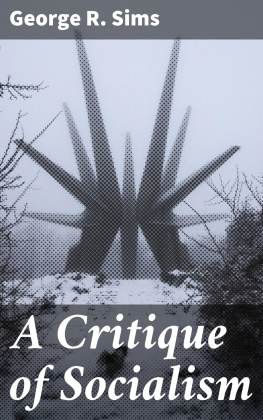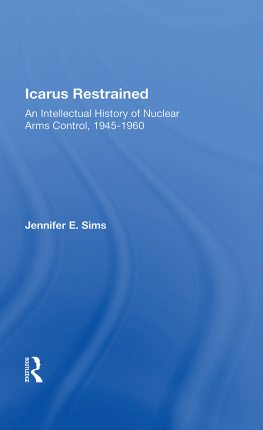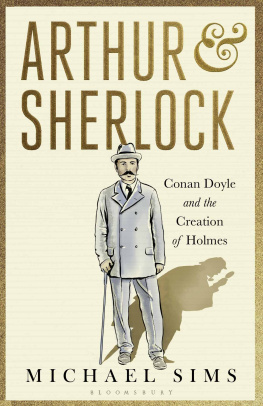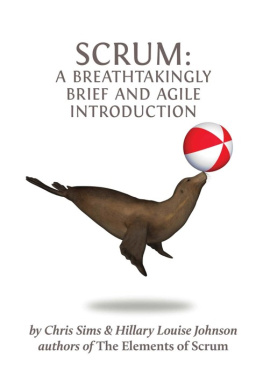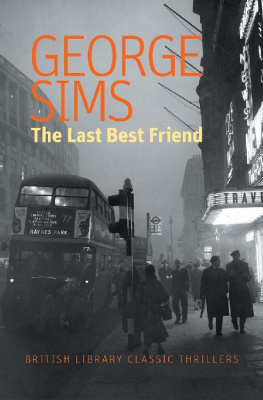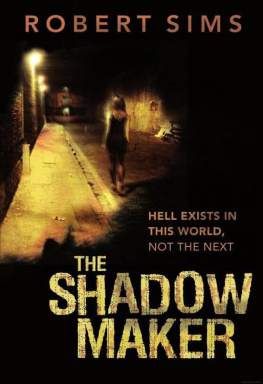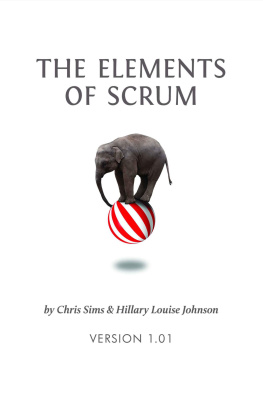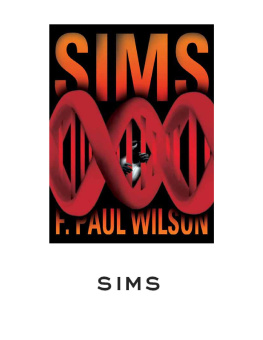CHAPTER IA NOTE OF INTRODUCTIONWHERE WE SHALL GO AND WHAT WE SHALL SEE
Table of Contents
Unrecorded crimesThe mystery of the graveThe fascination of the unknownThe shady friends we makeThe romance of the railway carriageWho and what is your neighbour?How I find my way about
A MYSTERY is, in a popular sense, that which cannot be easily explained; a circumstance that cannot be readily accounted for. Something is, but how or why we cannot tell. The mysteries of modern London are as the sands of the seashore. The mighty city itself is a mystery. The lives of thousands of its inhabitants are mysteries. In the glare and clamour of the noonday, as in the darkness and silence of the night, the mysteries arise, sometimes to startle the world, sometimes to attract so little attention that the story of them never reaches the public ear.
There are mysteries blazoned forth with all the glamour that the contents-bill and the headline can give them, and there are mysteries that are jealously guarded by those high in authority, lest public curiosity should seek to fathom them.
There are mysteries in splendid mansions and in squalid garrets which contain all the elements of criminal romance, and yet pass with the police and the press as matter-of-fact incidents of London's daily life.
The great river hides more mysteries than ever the Seine gave up to the Paris Morgue, and many of them end with a little rest in a quiet mortuary, a "found drowned" hand-bill posted for a day or two on a police-station notice-board, an inquest, an open verdict, and a pauper's funeral.
But among the victims have been men and women the story of whose doing to death would have thrilled the masses and the classes alike; in some instances would have revealed the presence in our midst of active agents of the most desperate secret societies in the world.
There are no mysteries of modern London more terrible than its unrecorded ones. There are disappearances that are never chronicled; murders that are never discovered; victims of foul play who go certified to the grave as having succumbed to "natural causes."
If it were realized that scores of people whose death has been accomplished by the hand of the assassin are quietly buried in London cemeteries every year without the slightest suspicion of wrong, the public would be startled. But the fact remains. And its most convincing illustration is that in almost every case where a poisoner has been tried, the exhumation of former wives or relatives who have died in circumstances which the latest revelation makes suspicious, has proved that they were poisoned too.
Fire has its mysteries, which are rarely revealed. Arson is not entirely practised for the sake of the insurance-money. It happens sometimes that there is loss of life. A house has ere now been burnt to the ground to conceal a crime or to secure a death. The murderer makes good his own escape; the victim is found when at last the brave firemen are able to search among the smoking ruins.
The story of "Enoch Arden" is told again and again in our public journals, sometimes with all the pathetic romance that the Laureate wove into his poem, sometimes with the sordid details of threats and blackmail.
But all the husbands and the wives who part and go their separate ways, forget each other and contract other alliances, do not make the circumstances of their chance re-encountering public.
The tragedy has happened ere now in the stalls of a theatre, in a crowded ball-room, in a fashionable restaurant. The supposed dead man has looked carelessly across the room and seen a woman go-white as death as her eyes met his. She has explained to the husband sitting by her side that it was a sudden faintness, and from that hour has had a terror in her heart that has spoilt her life.
There sits in the House of Lords to-day a statesman whose ancestor, following his wife to the grave, met in the churchyard a stranger who had also come to pay the last respect to a dead wife. A strange story was told, and the two husbands stood side by side at the grave, both mourning the same woman.
As it happened then, so it happened in recent years in a great London cemetery. The death of a well-known man appeared in the papers, and in the announcement was the place of interment and the hour of the ceremony.
The widow laid her cross of lilies reverently on the coffin as it was lowered, and turned weeping away; then through the crowd came a woman closely veiled and when the coffin had been lowered dropped upon the lid a little bunch of violets.
She had left her husband for fifteen years and made no sign, and he had married again. But she read of his death in the country town where she was living, and came to the cemetery.
No one in the crowd of mourners knew the truth, but the younger widow learnt it afterwards in some mysterious way, and in her perplexity let her husband's relatives know of her discovery. And because of the lawsuit they brought with regard to the will the truth became known.
The mysteries of crime and of wrong-doing are common to all cities and to all races. They are part and parcel of the history of civilization. It is not my object in these pages to bring out the sensational features of police romance. My desire is to act as a guide to those who would look beneath the surface of life in the world's great capital, who would wander about its highways and by-ways and see with me that which lies hidden from the casual observer. If I can help my readers to see behind the veil, to peer into the dark recesses, to study out-of-the-way aspects of life as it is lived by thousands of their fellow-citizens, I shall have accomplished a task which has for its object not the gratifying of a morbid curiosity, but the better understanding of things as they are in the great city which is at once the wonder and the admiration of the world.
We shall see life in many of its strangest phases, in its best and sometimes, perhaps, in its worst. We shall take our journeys in search of London's mysteries at all hours of the day, and sometimes in the dead of night, when all good people are supposed to be in bed and asleep, but when thousands are out earning an honest living, and hundreds are abroad to earn a dishonest one.
"How do all these people get money?" is a question which comes naturally to the lips as one gazes at a great crowd of human atoms jostling and elbowing their way along the busy thoroughfares on a working day. And that question puts in a sentence one of the greatest mysteries of modern London.
Alike in the City and in the West there are for ever mixing with the crowd men and women whose means of obtaining a livelihood are mysteries to all but themselves. The tragedies and comedies of life cross each other at every movement of the crowd. The melodrama passes side by side with all that is ordinary and humdrum in the monotony of everyday existence.
In the 'buses and the trams and the trains the silent passengers sit side by side, and no man troubles about his neighbour. But the mysteries of modem London are represented in the crowded vehicle and in the packed compartment. The quiet-looking woman sitting opposite you in the omnibus knows the secret that the police have been seeking to discover for months. The man who politely raises his hat because he touches you as he passes from his seat would, if the truth were known, be standing in the dock of the Old Bailey to answer a capital charge.




